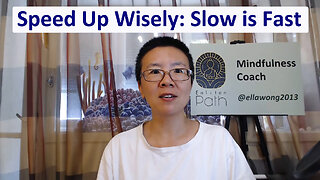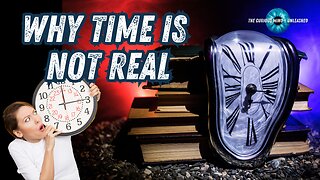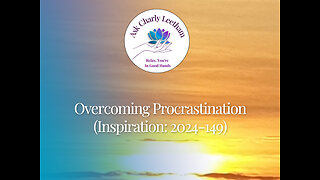5 Ways to slow down Time, Terence McKenna and speeding up of time, Major Social developments
The perception of time can be influenced by various psychological and physical factors. While we cannot actually slow down time itself, we can alter our perception of it. Here are five theories or methods that people use to perceive time as moving more slowly:
Mindfulness and Meditation:
Theory: Mindfulness and meditation practices can alter our perception of time by helping us focus on the present moment.
Explanation: By paying close attention to the here and now, rather than ruminating on the past or worrying about the future, we can experience each moment more fully. This heightened awareness can make time feel as though it is passing more slowly. Studies have shown that mindfulness can increase our sense of time availability and reduce the feeling of time pressure.
Engaging in New Experiences:
Theory: Novel experiences can slow down our perception of time by making each moment more memorable.
Explanation: When we encounter new and unfamiliar activities, our brains must process more information, which can make time feel elongated. This is why childhood summers or vacations often feel longer in retrospect; our days were filled with new experiences and learning. Engaging in new hobbies, traveling, or meeting new people can create a similar effect in adulthood.
Flow State:
Theory: Entering a flow state, where one is fully immersed and engaged in an activity, can alter the perception of time.
Explanation: In a flow state, individuals often lose track of time because they are completely absorbed in what they are doing. While this can sometimes make time feel like it is flying by, the intense focus and enjoyment can also create a rich, detailed memory of the experience, making it feel longer in hindsight. Achieving flow often involves a balance between the challenge of the task and one's skill level.
Reducing Stress and Anxiety:
Theory: Lowering stress and anxiety levels can slow down the perceived passage of time.
Explanation: High stress and anxiety can make time feel like it is racing because the mind is preoccupied with worries and fears. By managing stress through techniques like deep breathing, exercise, or cognitive-behavioral strategies, individuals can create a calmer mental state. This allows them to savor moments and experience time more slowly.
Limiting Multitasking:
Theory: Focusing on one task at a time rather than multitasking can make time feel less rushed.
Explanation: Multitasking can fragment our attention and make it seem like time is slipping away quickly because we are constantly switching focus. By concentrating on a single task, we can fully engage with it and feel a greater sense of control over our time. This singular focus can lead to a more relaxed and extended perception of time.
Incorporating these strategies into daily life can help shift our perception of time, making it feel slower and more expansive.
-
 6:31
6:31
Mindfulness Coach Ella
17 days agoSpeed Up Wisely: Slow is Fast
18 -
 1:58
1:58
The Curious Mind Unleashed
17 days agoTime Unraveled: Psychological vs Physical Time by The Curious Mind Unleashed
6 -
 6:45
6:45
Mighty Muddy Chuck
25 days agoSpeed of Time
27 -
 15:13
15:13
Online Business Manager & WordPress Expert
17 days agoOvercoming Procrastination (2024/149)
32 -
 0:42
0:42
Shelves of Knowledge and Information
13 days agoMaster Time Management with Self-Discipline
23 -
 0:20
0:20
SieveAeroImaging
15 days agoFocus on Your Direction, Not Speed
31 -
 0:56
0:56
Faithful Duty Group LLC
18 days agoA JOURNEY OF GROUTH, CONFIDENCE, AND POSSIBILITIES
2 -
 7:33
7:33
Biomindset
1 month agoAndy Frisella Mastering the Monotonous: The Key to Achieving Greatness
14 -
 4:36
4:36
Shelves of Knowledge and Information
1 month agoMastering Deep Work: Strategies for Focus and Productivity in a Distracted World
16 -
 28:28
28:28
The Catholic Midlife
27 days ago120 | The discipline of conscious choice | The Catholic Midlife Podcast
12